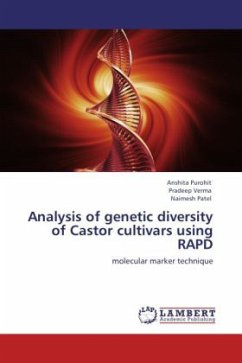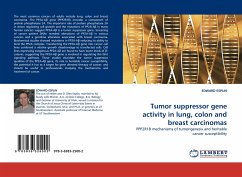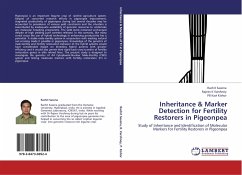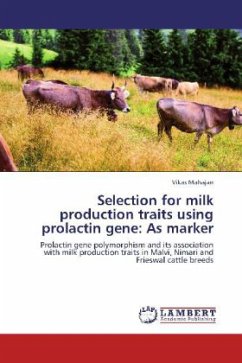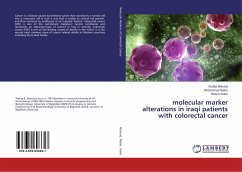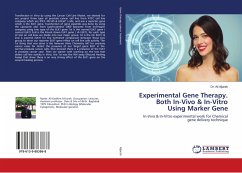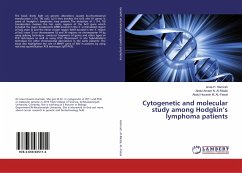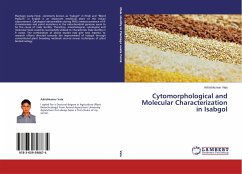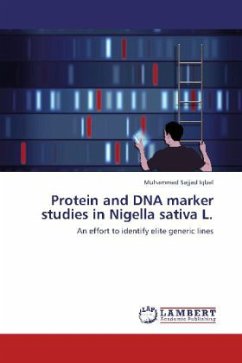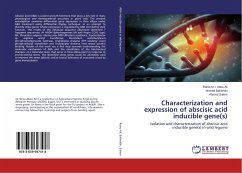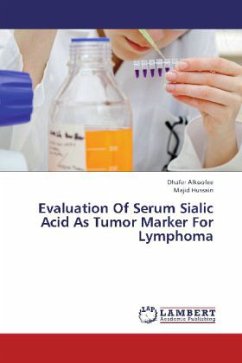
Evaluation Of Serum Sialic Acid As Tumor Marker For Lymphoma
Versandkostenfrei!
Versandfertig in 6-10 Tagen
32,99 €
inkl. MwSt.

PAYBACK Punkte
16 °P sammeln!
The present study was designed to evaluate the benefits of several serum sialic acid forms as a tumor marker in lymphoma. The period of samples collection and assessment was started from 1/1/2003 to 1/1/2004. Seventy lymphoma patients (Hodgkin's and non-Hodgkin's diseases) and 50 age matched healthy subjects were enrolled in this study. Total (TSA), bound (BSA), lipid associated (LSA), and free (FSA) serum sialic acid levels were determined in the patients and the healthy individuals. In addition, total serum proteins concentration (TP) were measured in all subjects and the ratio of the variou...
The present study was designed to evaluate the benefits of several serum sialic acid forms as a tumor marker in lymphoma. The period of samples collection and assessment was started from 1/1/2003 to 1/1/2004. Seventy lymphoma patients (Hodgkin's and non-Hodgkin's diseases) and 50 age matched healthy subjects were enrolled in this study. Total (TSA), bound (BSA), lipid associated (LSA), and free (FSA) serum sialic acid levels were determined in the patients and the healthy individuals. In addition, total serum proteins concentration (TP) were measured in all subjects and the ratio of the various sialic acid forms normalized to total serum proteins were computed. It was found significant elevations (P<0.005) of TSA, BSA, LSA, and FSA in lymphoma patients when compared with the healthy subjects. Total serum proteins was decreased significantly (P<0.005) and TSA/TP, BSA/TP, LSA/TP, and FSA/TP were raised significantly (P<0.005) in the cancer patients in respect with those ofthe healthy individuals. Several factors were evaluated for their influence on serum sialic acid forms and the results demonstrated minimal or no effect on such factors.



